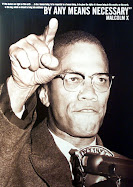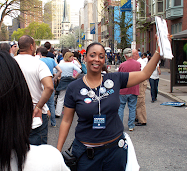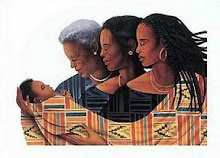Thursday, April 3, 2025
Sunday, March 30, 2025
Thursday, December 12, 2024
James Baldwin and Nikki Giovanni "A Conversation". Full Broadcast Video
Wednesday, December 11, 2024
James Baldwin and Nikki Giovanni "A Conversation". Full Broadcast Video
Monday, December 2, 2024
Saturday, May 25, 2024
I Am Ready
By RGBW46
I am ready for battle, I am ready
I won't rattle, I am ready, I am ready
I am ready for my life
I am ready for life's battles, I am ready
I know my God will battle for me
He created this world, I know He will handle anything that be
Are you ready? are you ready? are you ready?
School is a battle, love is a battle, life is a battle
Only with God can you win the battles
Family is a battle, friendship is a battle, education is a battle
I am ready for battle, I am ready
I won't rattle, I am ready, I am ready
Ready or not the battles of life are coming
This whole life is full of struggling
Being a good person is a good thing
Yet life will still make you battle, be ready, be ready
Every day is a battle of one kind or another
Are you ready? Are you ready? Are you ready
I am ready for battle, I am ready
I won't rattle, I am ready, I am ready
Monday, November 27, 2023
Friday, November 10, 2023
Thursday, November 9, 2023
My Homeland
Ibrahim Tuqan – My Homeland
My homeland
My homeland
Glory and beauty
Sublimity and prettiness
Are in your hills
Life and deliverance
Pleasure and hope
Are in your atmosphere
Will I see you?
Safe and comfortable
Sound and honored
Will I see you?
In your eminence
Reaching the stars
My homeland
My homeland
*
The youth will not get tired
Their goal is your independence
Or they die
We will drink from death
But we will not be slaves to our enemies
We do not want
An eternal humiliation
Nor a miserable life
We do not want
But we will return
Our great glory
My homeland
My homeland
*
The sword and the pen
Are our symbols
Not talking nor quarreling
Our glory and covenant
And a duty to fulfill it
Shake us
Our honor
Is an honorable cause
A raised flag
O, your beauty
In your eminence
Victorious over your enemies
My homeland
My homeland
As mentioned above, Ibrahim is Fadwa’s brother who initially introduced her to poetry and literature. Born and raised to a prominent governing family in Nablus in 1905, his works are believed to have influenced generations and echoed the very silenced Palestinian voices at the turn of the 20th century.
My Homeland seems to serve as both a tribute and reminder of how resilient Palestinians are, bearing and carrying “the sword and the pen (as) (their) symbols” at all times – proof that the Palestinian cause will only die out once each and every single pen runs out of ink.
Enough for Me
Fadwa Tuqan – Enough for Me
that she made sure to pen down. Her introduction to poetry was made through her brother who is no other than the illustrious Ibrahim Tuqan, another Palestinian nationalist poet whose work is believed to have rallied Arabs during their revolt against the British mandate.
Wednesday, November 8, 2023
Ta-Nehisi Coates Speaks Out Against Israel's "Segregationist Apartheid R...
Saturday, December 4, 2021
Isn't It a Pity











































